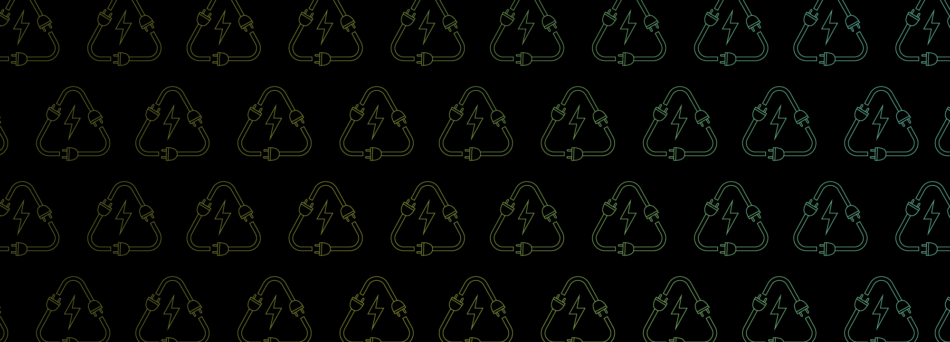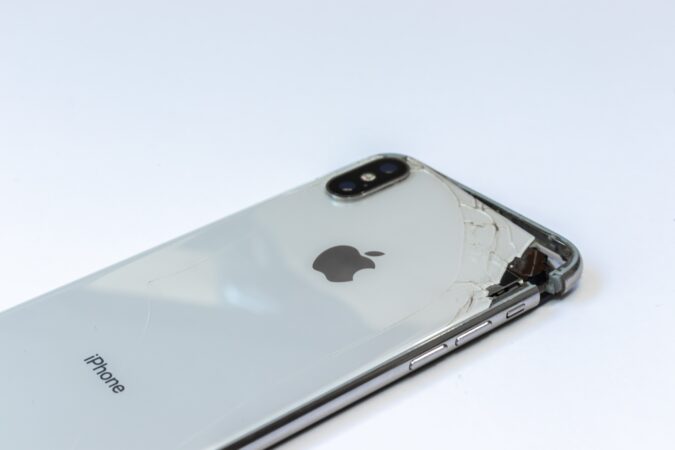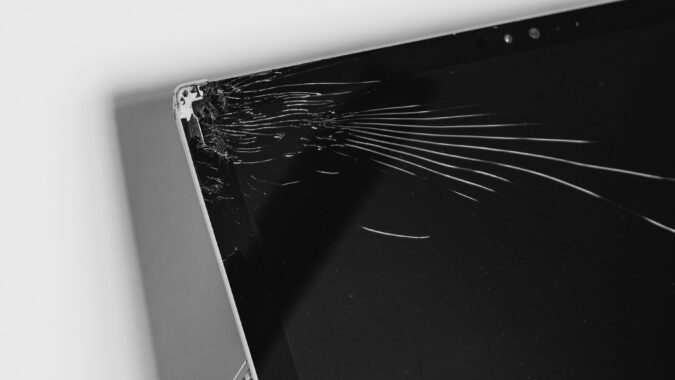
How to Reduce E-Waste
Reducing electronic waste (e-waste) is vital as it’s the fastest-growing domestic and commercial waste stream in the world. E-waste includes any type of electronic item with a plug, cord, and/or battery. Think TVs, laptops, mobile phones, toys, appliances, and devices like hairdryers. They contain valuable materials and should never go to landfill.
The UK is the second-largest producer of e-waste globally (after Norway), according to the UN. Around 23.9kg of e-waste per capita is created in the UK every year – of which 31.2% is recycled and reused. While that figure is above average, it still means more than two-thirds of electronic items go to waste.
Efficient management of e-waste can improve these figures and ensure as much domestic and commercial electrical waste is reused, recycled, and reduced as possible. Find out how to reduce e-waste in your business or household with these tips.
Get a FREE quote
Get a fast FREE quote for e-waste collection
- Free quote within 1 hr
- Any type of e-waste
- FREE bins and delivery
- We cover all of the UK
Why should we reduce e-waste?
The UK generates the second-highest amount of e-waste in the world. Businesses and homes produce huge volumes of electronic waste, whether it’s updating to new computers in the office, changing your mobile phone, or throwing out an old pair of hair straighteners. More than 400,000 tons of electrical waste come from households every year.
In 2013, the Waste Electrical and Electronic Equipment (WEEE) Regulations were introduced to encourage the recovery, reuse, and recycling of old electronics. Regulating e-waste restricts the amount that goes to landfill or incineration. If e-waste ends up in landfill the toxic materials they contain, like lead and mercury, can leach into the ground and nearby water.
Reducing e-waste also saves on the energy and resources required to create them. Many electronics contain valuable and non-renewable elements such as gold, silver, and aluminium. Recycling, reusing, and recovering old electricals avoids throwing away precious materials needlessly. Reducing electronic waste is a great way to save money, materials, and the environment.

10 ways to reduce e-waste
There are many ways to reduce electronic waste and ensure any electrical items you no longer need don’t go to a landfill site. You can take many of the same steps to reduce domestic and commercial electronic waste. For some easy tips and ideas consider these 10 ways to reduce e-waste:
- Donate old electricals – When updating to newer laptops at work, getting a new games console, mobile phone, or other electronic equipment, consider donating the old ones. Give to a charity shop, your family and friends, or a local community cause. Even if your old electrical item doesn’t work there may be people, businesses, or charities willing to take and repair them.
- Remove and reuse batteries – Take out the batteries from old and broken electronic devices so they don’t get thrown away as well. If they’ve still got power then you can reuse them in other items. Those that have run out should still be removed so you dispose of the batteries responsibly.
- Buy energy-efficient appliances – Check the energy rating and look for efficient electrical appliances as these should last longer and save you money on your bills in the long run. Most modern electronic appliances are designed to run efficiently and for longer. They may cost more upfront, but it prevents you from needing to buy a new appliance sooner, as cheaper and inefficient models may break down quicker.
- Recycle WEEE items – Never throw away any electronic items with your general waste at work or home. Always seek out recycling options for commercial or domestic WEEE items that you can’t repair, reuse, or donate. Visit your local household waste recycling centre (HWRC) or find a nearby electrical store that takes back old items to recycle for domestic WEEE. Businesses must arrange commercial waste collection of WEEE that ensures items are recycled.
- Regularly check devices – Look out for any deficiencies or issues with any electrical items you use regularly to spot problems before they worsen. This way you can get them fixed before they develop and cause serious damage or become irreparable. Preventative action helps reduce avoidable e-waste.
- Follow manufacturer usage guidelines – Read the manual and instructions to ensure you use electrical items properly to avoid accidentally damaging them through misuse. Businesses should provide training and have policies in place to protect particular electronic equipment. This includes storing them correctly, preventing overheating, and ensuring safe usage.
- Buy refurbished electronics – Consider buying refurbished and second-hand when you need any kind of new electrical items. This saves you money, avoids items going to waste, and cuts back on the energy and resources required to create new electronics. You might be able to trade in your old items at the same time.
- Clean and update equipment – Keep your electronic equipment clean to avoid problems developing such as rust or dirt getting into devices that stop them working properly. Regularly updating software and hardware for computers, mobile phones, tablets, and other electrical items also helps them run at their optimum levels.
- Only buy what you need – The easiest way to avoid creating unnecessary waste of any kind is to only purchase things you actually need. This includes electronics. Don’t be sucked in by great deals on electrical items you don’t have a use for and avoid buying in bulk unless you’ll use all the products.
- Move to non-electronic processes – Avoid using electronic devices and switch to manual processes if possible. This could be using a hand whisk rather than an electrical one in the kitchen or having analogue instead of digital clocks around your home or workplace. The less you use electrical items the longer they should last and the less e-waste it should create.
Ways of reducing e-waste
in your business
Finding solutions to reduce e-waste is important for businesses for various reasons. Reducing electronic waste lowers your company’s carbon footprint and saves money on your waste disposal costs. The less e-waste you produce the fewer waste collections you need, while recycling and recovery avoids sending waste to landfill and having to pay landfill tax.
There are many methods to reduce e-waste that businesses across all industries and of any size should use. Try these ways to reduce e-waste in your business:
- Educate employees – Train your employees on how to use all relevant electronic equipment properly and safely. This reduces the risk of damage and breakdowns due to misuse. It’s also important to educate them about the impact of e-waste, both on the environment and on your company’s finances, to help reduce it.
- Hire electronic equipment – If you only need certain electronic items for project work or a limited time, consider hiring rather than buying them. It could be using a pressure washer for cleaning purposes, a drinks machine for a work party, or laptops for a trip overseas. Hiring can be cost-effective and doesn’t lead to waste creation.
- Sell old items to staff – Donating e-waste to community causes and charities avoids waste. Another option is to sell old equipment such as laptops, printers, and work phones to your employees. If you’re upgrading computers and other devices sell the old ones to staff to raise some funds. It could be done via an auction, raffle, or first-come basis.
- Look after your electronics – Use protective cases, screen protectors, and surge protectors to avoid physical damage and electrical surges that can damage devices. Ensure your workplace has appropriate storage facilities for appliances so they don’t overheat, fall over, or break. Turn off electronics overnight where possible to preserve and extend their lifespan.
- Buy for the future – When investing in new electronic items for your workplace look at energy-efficient options and those designed for the future. Upgrading regularly can create higher volumes of e-waste and cost your company more over time. Choose products designed to last a long time.

How to reduce electronic
waste at home
UK homes produce lots of e-waste every day, from broken toys to throwing out old microwaves and upgrading items. There are many ways to reduce electronic waste from households through a few simple steps. Use these methods to reduce e-waste at home and lower the amount of waste electricals created domestically:
- Hold off upgrading your phone – It can be tempting to upgrade your mobile phone as soon as the contract ends. If it still works though, is it necessary? Around 4.7 million phones are thrown away in the UK every year. Keep using your old one, pass it on, or return it for recycling when you do upgrade.
- Reuse your old phone – If you’ve got a new mobile phone you could repurpose your old one. Use it as a sat nav in your car or as a dedicated music player at home. This saves buying an extra device and extends the life of your old mobile.
- Sell items online – Facebook Marketplace, Gumtree, and eBay are great places to sell old electronics from your home whatever their condition. List items for a set price or auction to earn a bit of money and send them to a good home. Many people will buy broken items to repair or strip them for parts too.
- Fix broken devices – Work out how to fix or pay someone to repair electronics rather than chucking out electric devices once they no longer work. Search for specialists online or in your local area as services still exist to repair vacuum cleaners, TVs, washing machines, and other electricals. It’s cheaper than buying a new one and avoids creating more e-waste.
- Think before you buy – Consider whether you really need new electronic items before making a purchase. Weigh up how much use you’ll get out of it, if you could get a refurbished or second-hand one, or know anyone getting rid of one for free. This can save you money and avoid waste.
Read more waste reduction guides
Help protect the environment and save money by reducing many other materials in your business or home. Discover how to reduce many other types of waste in our detailed guides.
Get a fast and free quote
Get a fast FREE quote for your e-waste collection
- Free quote within 1 hr
- Any type of e-waste
- FREE bins and delivery
- We cover all of the UK